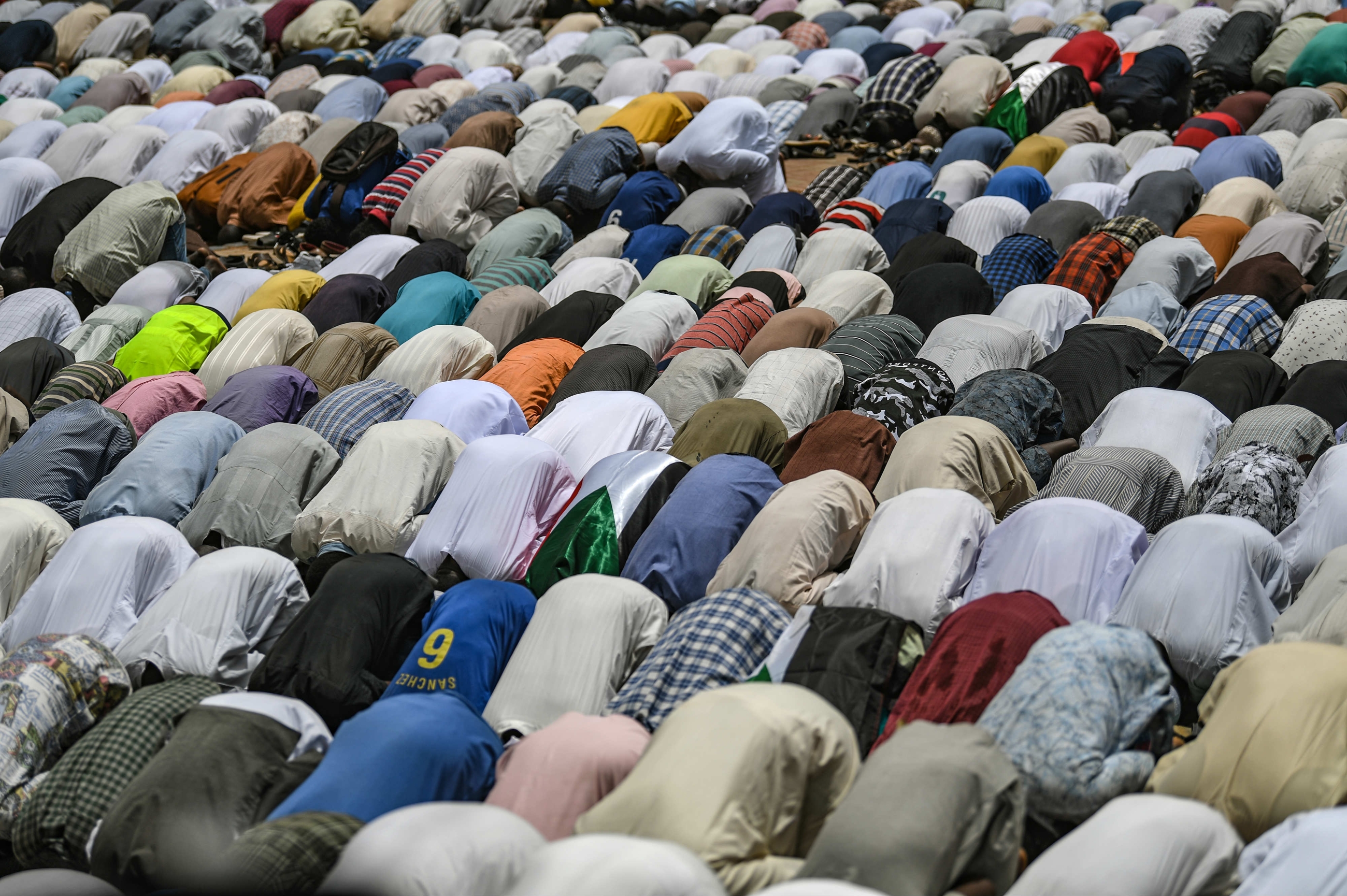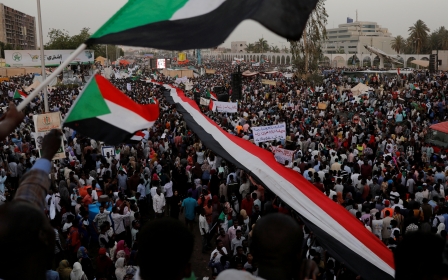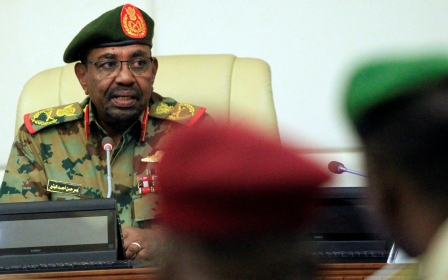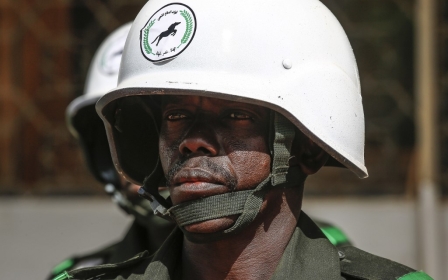Thousands of protesters continue Sudan sit-in to demand civilian rule

Thousands of protesters demanding an end to military rule flocked to the sit-in outside Sudan's defence ministry on Friday, in the biggest turnout in the centre of the capital since last week when long-time president, Omar al-Bashir, was ousted and a military council took over.
Protesters waved the Sudanese flag and chanted "freedom, peace and justice".
Children sitting on a bridge nearby banged with stones on the metal pillars to the rhythm of the chants.
The military council has said it is ready to meet some of the protesters' demands, including fighting corruption, but has indicated that it would not immediately hand over power to protest leaders.
"If we don't stay it will be as if we hadn't done anything, we will stay until we oust the military council," said 26-year-old protester Rania Ahmed.
New MEE newsletter: Jerusalem Dispatch
Sign up to get the latest insights and analysis on Israel-Palestine, alongside Turkey Unpacked and other MEE newsletters
Not far from the bridge, ten effigies dressed in security forces uniform and helmets were hanging from a metal pillar, symbolising protesters' animosity toward the security forces.
"I look at this everyday and it brings me great happiness," said Mostafa Abuel Qassem, a 29-year-old photographer.
"This is the pride of the revolution," he told the Reuters news agency.
Protesters body-searched
The Sudanese Professionals' Association (SPA), which has been leading the revolt, called for sweeping change to end a violent crackdown on dissent, purge corruption and cronyism and ease an economic crisis that worsened during Bashir's last years in power.
Protesters formed checkpoints at the entrances of the sit-in, wearing yellow vests and body-searching people coming in for weapons to make sure the protest remains peaceful.
Hundreds performed Friday prayers during the sit-in, while more marched to the area after praying in mosques nearby.
The sit-in that began on 6 April outside the Defence Ministry was the culmination of 16 weeks of protests triggered by the economic crisis, leading to Bashir being ousted and arrested after three decades in power.
Civilian body to be unveiled
Protest leaders announced on Friday plans to unveil a civilian body to take over from the military council as Washington said it would send an envoy to encourage the transition.
The SPA said in a statement that the civilian council members would be named at a news conference at 1700 GMT on Sunday outside the defence ministry to which foreign diplomats are also invited.
"We are demanding that this civilian council, which will have representatives of the army, replace the military council," Ahmed al-Rabia, a leader of the umbrella group of unions for doctors, engineers and teachers, told AFP.
The military council has said that a transitional period of up to two years will be followed by elections and that it is ready to work with anti-Bashir activists and opposition groups to form an interim civilian government.
"We are completely committed to handing over power within a maximum two years," one of the members of the council, Lieutenant General Salah Abdelkhalek, told state TV on Thursday.
"Perhaps the most difficult issue facing the military council now through its political committee is getting agreement from the political spectrum and the community forces on the naming of a prime minister," Abdelkhalek said. "The ball is in their court."
Gulf rivalry
The head of the 10-man military council, Lieutenant General Abdel Fattah al-Burhan, and his deputy are known for their ties to Saudi Arabia and the United Arab Emirates, through Sudan's participation in the Saudi-led coalition fighting Houthi rebels in Yemen.
Late on Thursday, the council's spokesman said an undersecretary at Sudan's foreign ministry had been dismissed over a statement from the ministry that had said preparations were under way for the visit of a delegation from Qatar, the regional rival of Saudi Arabia and the UAE.
Spokesman Shams El Din Kabbashi said the ministry had made the statement without consulting the council, state news agency SUNA reported.
Sudanese have been struggling with sharp price rises and shortages of cash and basic products.
Many analysts blame the country's economic troubles on mismanagement, corruption and the impact of US sanctions, as well as loss of oil revenue when South Sudan seceded in 2011.
Middle East Eye delivers independent and unrivalled coverage and analysis of the Middle East, North Africa and beyond. To learn more about republishing this content and the associated fees, please fill out this form. More about MEE can be found here.




